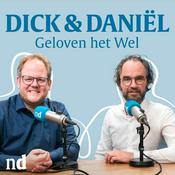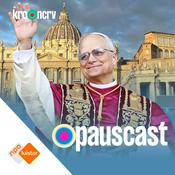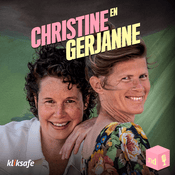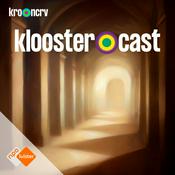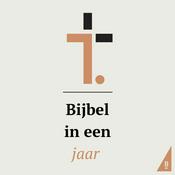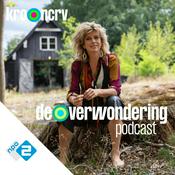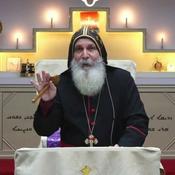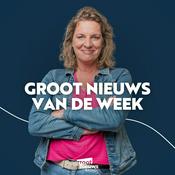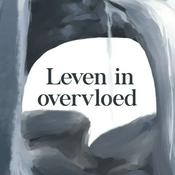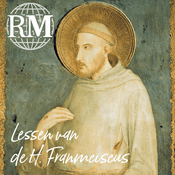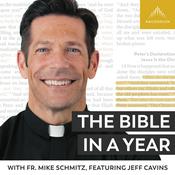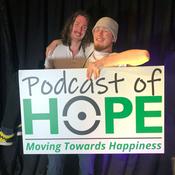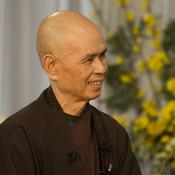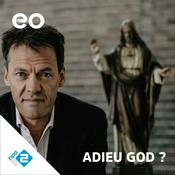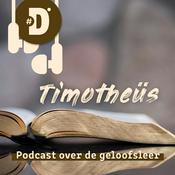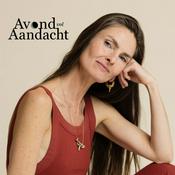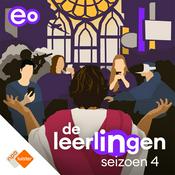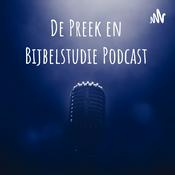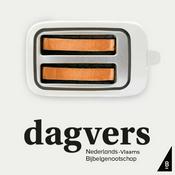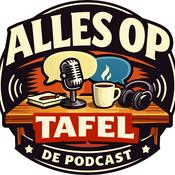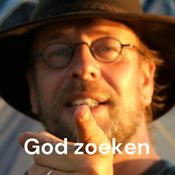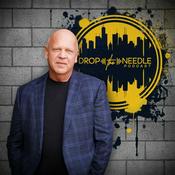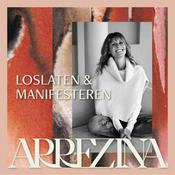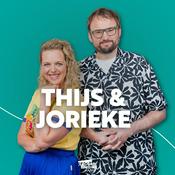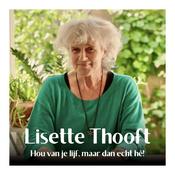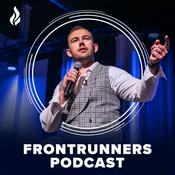98 afleveringen
- In this episode of Hunger for Wholeness, Sr. Ilia Delio speaks with Abre G. Fournier, PhD—a science-based philosopher of consciousness whose work bridges contemporary cognitive science with Asian contemplative traditions and practices of mind transformation.
Abre shares the personal journey that shaped her research: years of intensive contemplative practice, an encounter with what she describes as “awakened awareness,” and a profound, lasting shift in the sense of self that led her to investigate how transformation actually works in lived experience.
Together, Ilia and Abre explore enduring questions at the heart of consciousness studies: what we experience as the self, how mind and consciousness differ, and what contemporary science can (and cannot yet) reveal about these mysteries. Abre draws from philosophy of mind, cognitive science, and embodied and extended mind research to reframe selfhood as relational, interactive, and dynamically formed rather than fixed and isolated.
ABOUT ABRE FOURNIER
“Can we as human beings really understand what it would mean to have a conscious experience without a sense of self?”
Abre G. Fournier, PhD, is a science-based philosopher of consciousness with a focus on mind transformation, bridging the advancements of contemporary cognitive sciences with teachings and practices from Asian philosophies centered on states of awakened awareness. Her work synthesizes insights from evolutionary biology, dynamical systems, embodied cognition, and advanced intelligence to articulate the rise of a new dimension of planetary mind. Her international work in facilitating consciousness evolution offers vital insights for philosophers and scientists investigating the complexities and transformation of human consciousness, as well as for professionals and practitioners engaged in transformative practices. She has also been active in the arts and higher education, with academic and executive roles at the State University of New York (SUNY). Her work as a practicing artist in films and new-media collaborations with musicians and composers has been shown in art museums and galleries, film festivals, and live concerts in the US and abroad. Originally from France, Abre lives in the New York metropolitan area.
Support the show
A huge thank you to all of you who subscribe and support our show!
Support for A Hunger for Wholeness comes from the Fetzer Institute. Fetzer supports a movement of organizations who are applying spiritual solutions to society's toughest problems. Get involved at fetzer.org.
Visit the Center for Christogenesis' website at christogenesis.org/podcast to browse all Hunger for Wholeness episodes and read more from Ilia Delio. Follow us on Facebook and Instagram for episode releases and other updates. - In this episode of Hunger for Wholeness, Robert Nicastro welcomes listeners back into Sr. Ilia Delio’s conversation with biophysicist and technologist Gregory Stock. Last time, Greg raised a profound question: how will AI shape two enduring human longings—love and immortality? In this second part, Ilia and Greg return to the theme of immortality, exploring not only what it might mean for individuals, but what it could mean for the human species as a whole.
As the conversation unfolds, the focus widens from personal hopes to public consequences. Technology has often promised abundance, comfort, and control. Nevertheless, who actually benefits when those promises arrive? Ilia presses into the economics of AI, asking whether it will become a first-world luxury or something that can genuinely serve the common good.
Later, the dialogue turns toward a civic question that is increasingly difficult to avoid: Are our social structures and our governments prepared for the realities of AI? Greg shares his hopes for the future and the aims of his new book, Generation AI and the Transformation of Human Being.
ABOUT GREGORY STOCK
“The greatest frontier in human evolution may no longer lie outside us, but inside: in the choices — and designs — we make for ourselves.”
Gregory Stock, Ph.D., is a scientist, writer, entrepreneur, and public communicator whose work represents a deep exploration into what it means to be human in the 21st century. During his career, he has developed the foremost paradigm for personal inquiries into values and beliefs, which has significant implications for humankind as it faces the profound shifts brought by silicon and biotech. Today, Greg serves as an expert speaker and advisor to biotech and healthcare companies and to non-profits at the cutting edge of human health.
Support the show
A huge thank you to all of you who subscribe and support our show!
Support for A Hunger for Wholeness comes from the Fetzer Institute. Fetzer supports a movement of organizations who are applying spiritual solutions to society's toughest problems. Get involved at fetzer.org.
Visit the Center for Christogenesis' website at christogenesis.org/podcast to browse all Hunger for Wholeness episodes and read more from Ilia Delio. Follow us on Facebook and Instagram for episode releases and other updates. - In this episode of Hunger for Wholeness, Robert Nicastro welcomes listeners back into Sr. Ilia Delio’s ongoing conversation with biophysicist and technologist Gregory Stock, whose new book, Generation AI and the Transformation of Human Being, has just been released.
Together, Ilia and Greg open a doorway into the questions at the heart of “Generation AI”—not simply what artificial intelligence can do, but what it may be doing to us. As AI becomes woven into daily life and the broader evolutionary story, they explore how the human person is being reshaped: our attention, our desires, our sense of progress, and the subtle ways technology can begin to form the contours of relationship and meaning.
Throughout the conversation, Ilia presses a concern that runs beneath the headlines: Can AI make it easier to be human—or does our relentless pursuit of progress come with a cost? And as their dialogue deepens, Greg raises the provocative question: will we fall in love with AI? (He thinks so.)
ABOUT GREGORY STOCK
“The greatest frontier in human evolution may no longer lie outside us, but inside: in the choices — and designs — we make for ourselves.”
Gregory Stock, Ph.D., is a scientist, writer, entrepreneur, and public communicator whose work represents a deep exploration into what it means to be human in the 21st century. During his career, he has developed the foremost paradigm for personal inquiries into values and beliefs, which has significant implications for humankind as it faces the profound shifts brought by silicon and biotech. Today, Greg serves as an expert speaker and advisor to biotech and healthcare companies and to non-profits at the cutting edge of human health.
Support the show
A huge thank you to all of you who subscribe and support our show!
Support for A Hunger for Wholeness comes from the Fetzer Institute. Fetzer supports a movement of organizations who are applying spiritual solutions to society's toughest problems. Get involved at fetzer.org.
Visit the Center for Christogenesis' website at christogenesis.org/podcast to browse all Hunger for Wholeness episodes and read more from Ilia Delio. Follow us on Facebook and Instagram for episode releases and other updates. - In this second part of her conversation with Robert Nicastro, theologian and spiritual teacher Sheri Kling deepens the discussion on how process and open and relational theologies can reshape our spiritual lives.
What does it mean to pray into immanence rather than plead to a distant deity? How can our rituals and symbols come alive again when they're held with spaciousness? And what does faith beyond belief look like in a world longing for depth and connection?
Sheri shares how process theology transforms worship, preaching, and community life—and offers tools for religious leaders hoping to revive faith without falling into dogma. From quantum entanglement to Ezekiel’s dry bones, she invites us to imagine a God intimately present in all things, calling us toward healing, renewal, and co-creative hope.
Later in the episode, Sheri reflects on spiritual maturity, recovering from toxic religion, and why deconstruction must give way to reconstruction rooted in wonder, trust, and love.
ABOUT SHERI KLING
“We are a fragmented people in a fragmented world—but when we begin to think with a more integrative, relational vision of reality, faith can come alive again. We discover that we matter, we belong, and we can participate in the sacred work of a whole-making cosmos.”
Sheri D. Kling, Ph.D., is a writer, theologian, songwriter, and spiritual teacher who serves as director of Process & Faith with the Center for Process Studies, interim minister of Redeemer Lutheran Church in Bradenton, Florida, and teaches regularly for the Haden Institute and Claremont School of Theology, from which she earned her doctorate. She is the author of A Process Spirituality: Christian and Transreligious Resources for Transformation and editor of Renewing Faith: Reigniting Faith and Ministry through Process and Open & Relational Theologies. She speaks, teaches, and leads retreats on spirituality, theology, and transformation, and her work can be found online at sherikling.com and her Substack, The Sacred Everywhere.
Support the show
A huge thank you to all of you who subscribe and support our show!
Support for A Hunger for Wholeness comes from the Fetzer Institute. Fetzer supports a movement of organizations who are applying spiritual solutions to society's toughest problems. Get involved at fetzer.org.
Visit the Center for Christogenesis' website at christogenesis.org/podcast to browse all Hunger for Wholeness episodes and read more from Ilia Delio. Follow us on Facebook and Instagram for episode releases and other updates. - In this episode of Hunger for Wholeness, Robert Nicastro welcomes back theologian, minister, and director of Process and Faith, Dr. Sheri Kling, for a rich conversation on the power of theology to renew spiritual life in a fragmented world.
Sheri shares the story behind Renewing Faith, a newly released collection of essays emerging from a 2025 conference that brought together voices exploring how process and open and relational theology can breathe new life into Christian practice. Together, she and Robert unpack how these movements offer a vision of God not as a distant, all-controlling force, but as a deeply relational presence—persuasive, not coercive, and intimately involved in the unfolding of creation.
Throughout the episode, Sheri explains key theological ideas in everyday terms, weaving in science, mysticism, and lived experience. She reflects on her own journey from Jungian psychology to process thought, and how this path gave her a more integrated, healing view of God, suffering, and spiritual wholeness.
Later, Sheri offers a profound reimagining of divine power—sharing a story from Proverbs of Ashes that illustrates how a theology of persuasive love can make space for grief, agency, and hope.
ABOUT SHERI KLING
“We are a fragmented people in a fragmented world—but when we begin to think with a more integrative, relational vision of reality, faith can come alive again. We discover that we matter, we belong, and we can participate in the sacred work of a whole-making cosmos.”
Sheri D. Kling, Ph.D., is a writer, theologian, songwriter, and spiritual teacher who serves as director of Process & Faith with the Center for Process Studies, interim minister of Redeemer Lutheran Church in Bradenton, Florida, and teaches regularly for the Haden Institute and Claremont School of Theology, from which she earned her doctorate. She is the author of A Process Spirituality: Christian and Transreligious Resources for Transformation and editor of Renewing Faith: Reigniting Faith and Ministry through Process and Open & Relational Theologies. She speaks, teaches, and leads retreats on spirituality, theology, and transformation, and her work can be found online at sherikling.com and her Substack, The Sacred Everywhere.
Support the show
A huge thank you to all of you who subscribe and support our show!
Support for A Hunger for Wholeness comes from the Fetzer Institute. Fetzer supports a movement of organizations who are applying spiritual solutions to society's toughest problems. Get involved at fetzer.org.
Visit the Center for Christogenesis' website at christogenesis.org/podcast to browse all Hunger for Wholeness episodes and read more from Ilia Delio. Follow us on Facebook and Instagram for episode releases and other updates.
Meer Religie en spiritualiteit podcasts
Trending Religie en spiritualiteit -podcasts
Over Hunger for Wholeness
Story matters. Our lives are shaped around immersive, powerful stories that thrive at the heart of our religious traditions, scientific inquiries, and cultural landscapes. As Bertrand Russell and Albert Einstein claimed, science without religion is lame and religion without science is blind. This podcast will hear from speakers in interdisciplinary fields of science and religion who are finding answers for how to live wholistic lives. This podcast is made possible by funding from the Fetzer Institute. We are very grateful for their generosity and support. (Image credit: X-ray: NASA/CXC; Ultraviolet: NASA/JPL-Caltech/SSC; Optical: NASA/STScI [M. Meixner]/ESA/NRAO [T.A. Rector]; Infrared: NASA/JPL-Caltech/K.)
Podcast websiteLuister naar Hunger for Wholeness, Een preek voor elke dag en vele andere podcasts van over de hele wereld met de radio.net-app
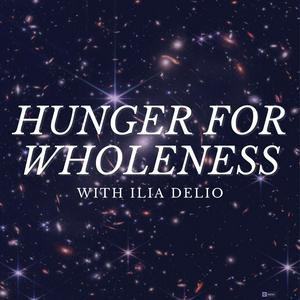
Ontvang de gratis radio.net app
- Zenders en podcasts om te bookmarken
- Streamen via Wi-Fi of Bluetooth
- Ondersteunt Carplay & Android Auto
- Veel andere app-functies
Ontvang de gratis radio.net app
- Zenders en podcasts om te bookmarken
- Streamen via Wi-Fi of Bluetooth
- Ondersteunt Carplay & Android Auto
- Veel andere app-functies


Hunger for Wholeness
Scan de code,
download de app,
luisteren.
download de app,
luisteren.


